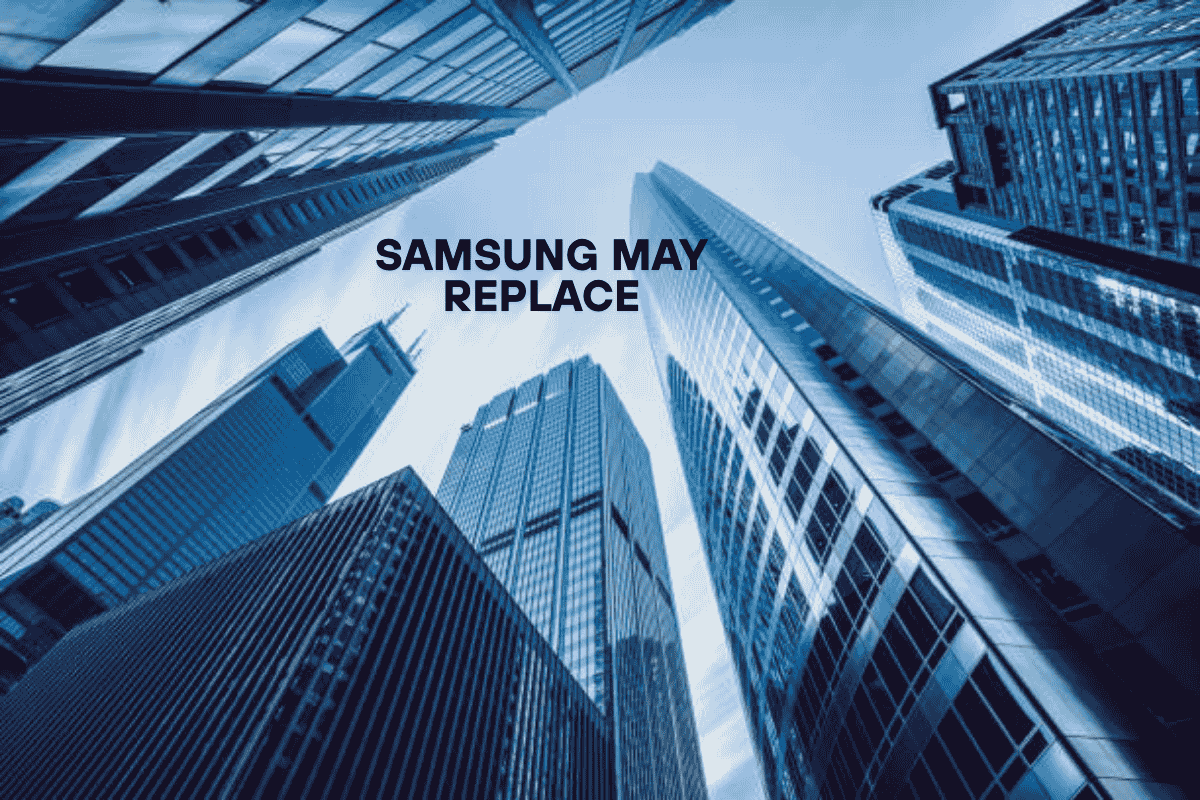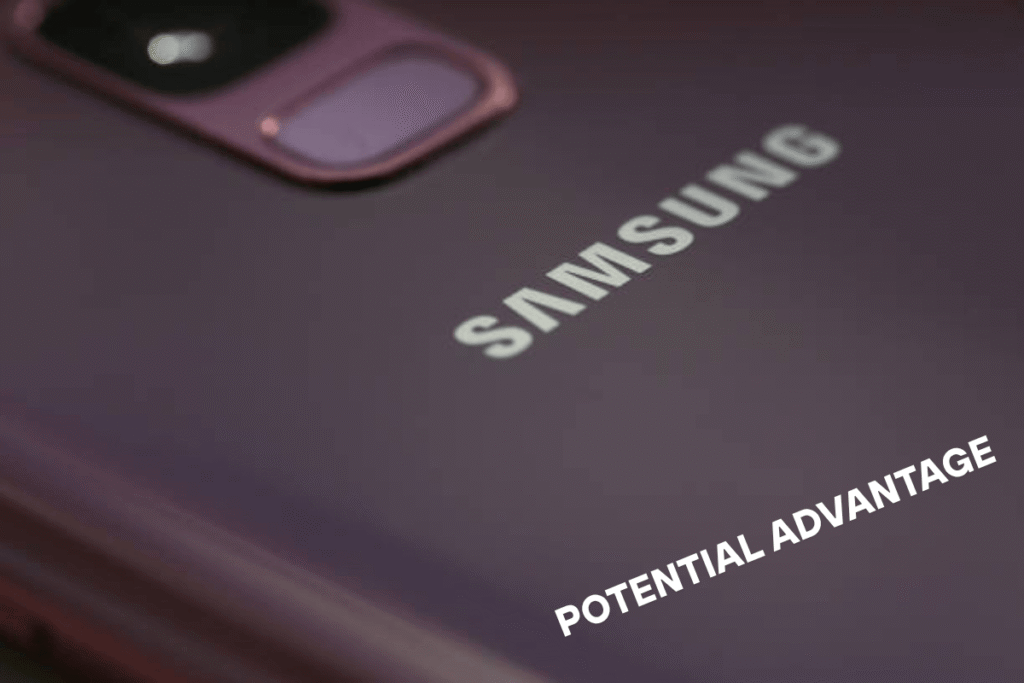
Hello people! Could Samsung replace Google with Bing as the default search engine? The entire internet search process is undergoing fundamental changes due to the latest developments in AI technology. For over 20 years, Google has maintained near-monopoly power as the default search engine on over a billion devices, including Samsung’s Android smartphones.
The mere suggestion that Samsung, the world’s largest smartphone manufacturer, is considering switching from Google to Microsoft’s Bing as the default search engine is astonishing and signals that the competition and transformation energies driven by AI are genuinely remarkable.
Let’s dive in!
Table of Contents
Rumour That Rocked the Tech Industry

The first indications in early 2023 that Samsung might transition from Google to Bing sent shudders through the Mountain View headquarters immediately. Subsequently, in reporting that a review of such a transition had been put on hold amid fears of user disruption and poisoning the key relationship with Google, the mere consideration of such action highlighted a seismic change within the technology ecosystem.
The mere potential for Samsung, a pillar of the Android mobile ecosystem, to consider an alternative to Google search put a spotlight on the growing bargaining power of AI-based search functions provided by competitors such as Bing.
The AI Imperative: Bing’s New Energy
Microsoft’s aggressive foray into AI, starting with its massive investment in OpenAI and including ChatGPT’s base technology within Bing, has reinvigorated its competitive position. It has enabled Bing to provide conversational, human-like answers to users’ queries, something Google has since frantically tried to imitate with its Bard chatbot (since then renamed Gemini).
Instead of a list of links, the capacity for more direct and fuller responses is an enticing alternative to traditional searching and is a significant reason for Bing’s comeback. This new emphasis on AI has not gone unnoticed. Samsung, a hardware-driven company by reputation, recognises the central importance of innovative software in creating a better user experience.
The Google-Samsung Nexus: A Union Under Fire
The Google-Samsung partnership is one of the most symbiotic and complex in the technology sector. Samsung’s staggering success in the smartphone industry is largely attributed toGoogle’s Android operating system. Android provides the software backbone, while Samsung excels in hardware development, production, and worldwide distribution.
This relationship has traditionally involved Google paying Samsung (and other original equipment makers) billions to keep its search engine as the default. The estimates are that Google’s yearly revenue from its agreement with Samsung alone would be $3 billion.
Monetary Stakes and Market Dynamics
The monetary consequences of a possible realignment are enormous. Google’s advertising revenue from search, primarily driven by its default position on mobile phones, accounts for a significant portion of its total revenue. Losing Samsung’s user base, even in part, would be a substantial blow to this source of revenue.
Worldwide, Google is still the unchallenged king of search, holding nearly 90% market share on all devices. Bing has been gaining ground, but at this point, it holds a modest 3% market share %. Even a minor chip in Google’s dominance, though, especially from a significant player like Samsung, would have a disproportionate effect on market perception and, as such, might prompt other OEMs to explore similar alternatives.
- The balance in the search engine industry has been under growing scrutiny by antitrust officials worldwide.
Beyond the Default:
The discussion surrounding Samsung and Bing isn’t simply about changing a default setting, but about transforming how individuals consume information. Old search, defined by “10 blue links,” is yielding to AI-facilitated conversational interfaces. Consumers are increasingly coming to expect explicit answers, summaries, and suggestions tailored to their interests, often without needing to click through to other sites. Both Microsoft and Google are significantly invested in this AI-led change.
Google’s “AI Overviews” and “AI Mode” features of its search engine aim to provide more informative and instantaneous responses. With its early adoption of ChatGPT, Microsoft has already displayed a strong ability in this regard.
Potential Advantage to Samsung

Moving to Bing, or even a more diversified search approach, might provide some benefits for Samsung:
Distinct User Experience
With the incorporation of Bing’s conversational search, powered by AI, Samsung can provide a distinctive and innovative search experience that sets its phones apart from competing Android phones. This would go beyond superficial variations, reaching the very method through which people interact with their devices to find information.
Negotiating Bargaining Power
The threat of switching gives Samsung strong bargaining power in future negotiations with Google over revenue split, pre-installation of applications, and access to newer Android features. This added bargaining power will translate into better terms for Samsung’s alliance with Google.
Lesser Dependence
Having less dependence on Google by diversifying its search partners makes Samsung less dependent on Google, potentially allowing it greater control over its software world and long-term strategy. The company may need it to support the growth and development of its proprietary software and services.
Chances for New Inventions
Samsung may find more opportunities to innovate with AI if it collaborates more closely with Microsoft, which could lead to innovative features and improved integration with other Microsoft platforms. This could include more integration with Microsoft 365, Xbox, or other business solutions, engaging a wider set of user requirements.
Financial Incentives
Although Google’s compensation is considerable, Microsoft would offer substantial economic incentives to obtain such a high-profile alliance. This might manifest as outright payments, shared revenue from search ads, or other mutually advantageous deals.
Strategic Alignment in AI
Samsung also has its own AI aspirations with Bixby. Collaborating with Microsoft, the industry’s current leader in AI R&D, would complement Samsung’s indigenous AI development and enable more synergistic convergence of AI across its product spectrum.
Challenges and Considerations
Despite the potential advantages, an outright shift is beset with issues:
Developer Ecosystem and Integration
Android’s platform heavily favours Google’s services like Search, Google Assistant, Google Maps, and most Google Play Services APIs. It would be a complex and herculean effort to integrate Bing seamlessly throughout all of Samsung’s apps and services, while maintaining developer compatibility without sacrificing existing functionality. It would take considerable engineering resources and mindful planning.
Pre-existing Agreements
Samsung and Google’s long-term contracts and financial agreements would have to be tactfully worked around, renegotiated or cancelled. Breaching these agreements would result in hefty penalties or litigation.
Ad Revenue Impact and
As much as Samsung would gain a share of Bing’s search ad revenue, it would have to ensure that this offset any loss of the huge payments from Google. Bing’s monetisation platform and advertiser reach are currently smaller than Google’s, which is a risk to Samsung’s revenues.
Feature Parity and Quality
As much as Bing has improved with AI, Google Search retains a massive index, advanced algorithms, and a treasure trove of features accumulated over decades. Attaining feature parity and a uniformly high-quality search experience on all use cases would be essential for Bing.
App Compatibility
Manyroid apps and services are closely integrated with Google Search and other services. A switch might cause compatibility problems or less functionality for some applications, affecting the overall user experience on Samsung phones.
Brand Perception and Trust
Others may welcome a change, while some may be suspicious of it or interpret it as a signal for instability in the alliance. Gaining user trust in a new default search engine would be a gradual process.
Google's Defensive Movements
Google is keenly awarethe challenge to ito search leadership and is actively strestrengtheningits position. Its billion-plus dollar compensation to Apple to continue as the default search engine on Safari underscores its drive to retain mobile search share.
Google is also investing heavily in its own AI research, integrating Gemini into its search engine and Android platform. The firm is actively pursuing the development of its search experience into a more conversational and AI-based one to counter the attractiveness of competitors such as Bing.
- Google’s reaction to the threat posed by Bing has been rapid and firm.
- The expedited release of “AI Overviews” (now Gemini in Search) and other generative AI capabilities in its search product is a clear reaction to the growth experienced by Bing.
The Wider Ramifications

The hypothetical Samsung-Bing union is one manifestation of a broader trend: the profound impact of generative AI on the tech industry. This new generation of AI is not incremental; it’s about radically remaking the way software is constructed, people use technology, and value is produced.
Reconsideration of Default Status
The idea of a “default” search engine is under threat. With the increased use of AI assistants, the top-level interaction point could become something other than a search bar, such as a conversational interface, so that while the underlying search provider is less apparent, its AI abilities are more critical.
Greater Competition in AI
Players such as Google, Microsoft, Amazon, Apple, and even niche AI startups are engaged in fierce competition to create and implement the most sophisticated AI models. Such competition will promote speedy innovation and may bring new players to disrupt existing markets.
Shifting Revenue Streams
As search changes, its monetisation will also change. Conversational AI can lead to new ad formats, subscription-based models for premium AI features, or even direct transaction facilitation, reshaping the traditional search ad business.
Data and Privacy Issues
The deployment of AI in search introduces new issues of data privacy, algorithmic bias, and the ethical use of competent AI models. Users and regulators will increasingly demand transparency and control over their data.
Hardware-Software Synergy
The need for tightly coupled hardware and software will intensify. Devices that can naturally leverage robust on-device AI capabilities in combination with cloud-based AI will provide an enhanced user experience. This may lead to closer collaborations among chip vendors, device manufacturers, and AI developers.
Conclusion
Samsung’s potential decision to switch from Google to Bing as its default search engine marks a significant turning point in technology. This business consideration is more than a preference for software; it underscores the growing impact of AI and the intense competition among technology giants to own users’ experiences.
Although no final decision has been announced, the stakes are significant for Google and consumers. This shift would redefine the mobile search landscape, disrupt long-established alliances, and offer users enhanced features and functionality. Will Samsung truly switch to Bing, reshaping search engine dynamics?
FAQS
1: Why is Samsung seeking to replace Google with Bing?
Samsung is exploring Bing due to its more advanced AI capabilities, especially after Microsoft integrated OpenAI technology, which offers more intelligent search functionality compared to what Google currently provides.
2: How might this action impact Google’s yearly search revenue?
Google stands to lose an estimated $3 billion per year from Samsung’s shift, a substantial portion of its mobile search engine revenue.
3: What are Bing’s current strengths over Google?
Bing now includes AI-driven features such as conversational search, fast answers, and contextualised results, which bring it closer in line with standard Google search.
4: Has Samsung officially spoken about the switch to the search engine?
Although insider rumours indicate serious discussions are underway, Samsung has not officially made a statement regarding the switch.
5: How could this affect Samsung smartphone users and their experience?
Individuals can anticipate enhanced AI-powered search results, quicker info retrieval, and smoother Microsoft integration on Samsung devices if the transition occurs.




Leave a Reply